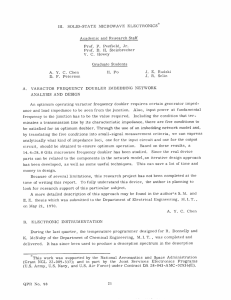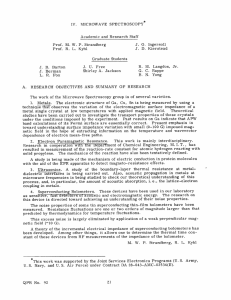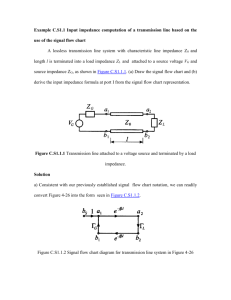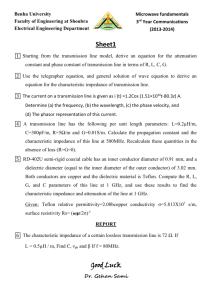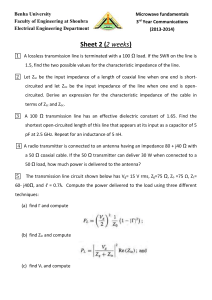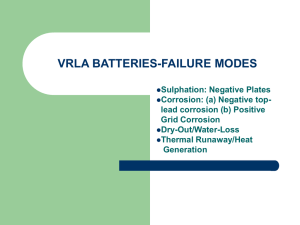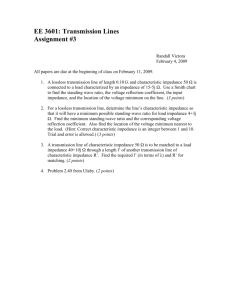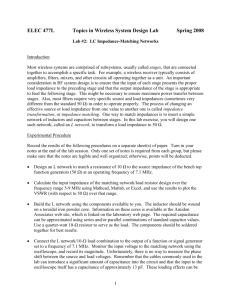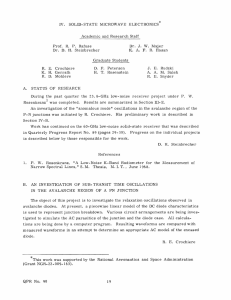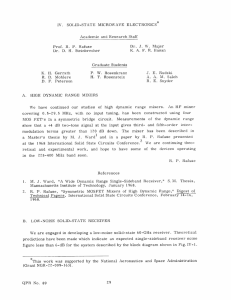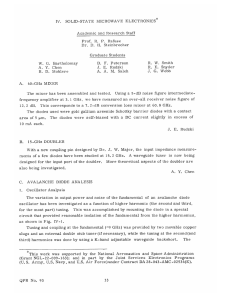VII. SOLID-STATE MICROWAVE ELECTRONICS'
advertisement
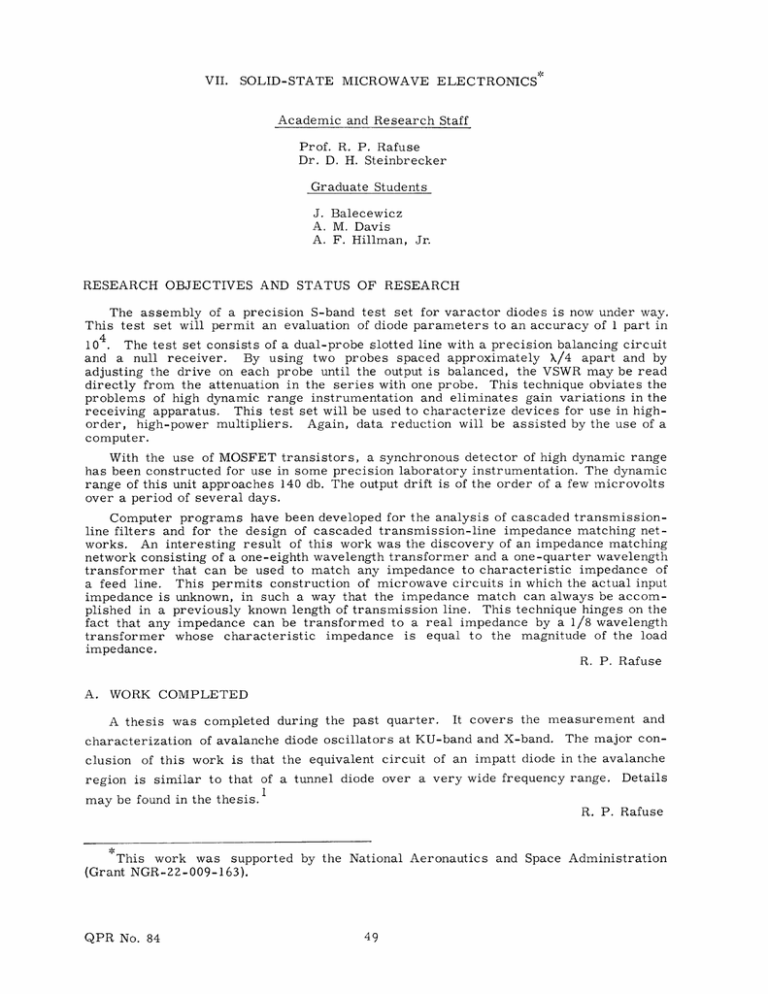
VII. SOLID-STATE MICROWAVE ELECTRONICS' Academic and Research Staff Prof. R. P. Rafuse Dr. D. H. Steinbrecker Graduate Students J. Balecewicz A. M. Davis A. F. Hillman, Jr. RESEARCH OBJECTIVES AND STATUS OF RESEARCH The assembly of a precision S-band test set for varactor diodes is now under way. This test set will permit an evaluation of diode parameters to an accuracy of 1 part in 104. The test set consists of a dual-probe slotted line with a precision balancing circuit By using two probes spaced approximately X/4 apart and by and a null receiver. adjusting the drive on each probe until the output is balanced, the VSWR may be read directly from the attenuation in the series with one probe. This technique obviates the problems of high dynamic range instrumentation and eliminates gain variations in the receiving apparatus. This test set will be used to characterize devices for use in highorder, high-power multipliers. Again, data reduction will be assisted by the use of a computer. With the use of MOSFET transistors, a synchronous detector of high dynamic range has been constructed for use in some precision laboratory instrumentation. The dynamic range of this unit approaches 140 db. The output drift is of the order of a few microvolts over a period of several days. Computer programs have been developed for the analysis of cascaded transmissionline filters and for the design of cascaded transmission-line impedance matching networks. An interesting result of this work was the discovery of an impedance matching network consisting of a one-eighth wavelength transformer and a one-quarter wavelength transformer that can be used to match any impedance to characteristic impedance of a feed line. This permits construction of microwave circuits in which the actual input impedance is unknown, in such a way that the impedance match can always be accomplished in a previously known length of transmission line. This technique hinges on the fact that any impedance can be transformed to a real impedance by a 1/8 wavelength transformer whose characteristic impedance is equal to the magnitude of the load impedance. R. P. Rafuse A. WORK COMPLETED A thesis was completed during the past quarter. characterization It covers the measurement and of avalanche diode oscillators at KU-band and X-band. The major con- clusion of this work is that the equivalent circuit of an impatt diode in the avalanche region is similar to that of a tunnel diode over a very wide frequency range. Details may be found in the thesis.1 R. P. Rafuse This work was supported by the National Aeronautics and Space Administration (Grant NGR-22-009-163). QPR No. 84 (VII. SOLID-STATE MICROWAVE ELECTRONICS) References 1. A. M. Davis, "Characterization of a Microwave Negative Resitance Diode," S.M. Thesis, Department of Electrical Engineering, M.I.T., December 1966. QPR No. 84
